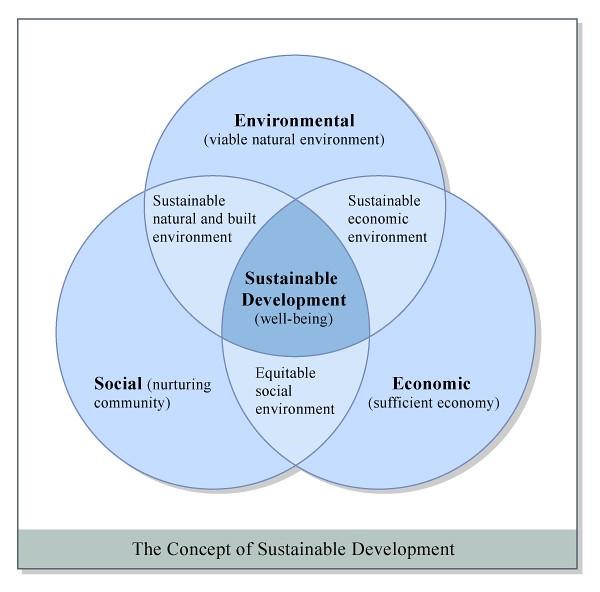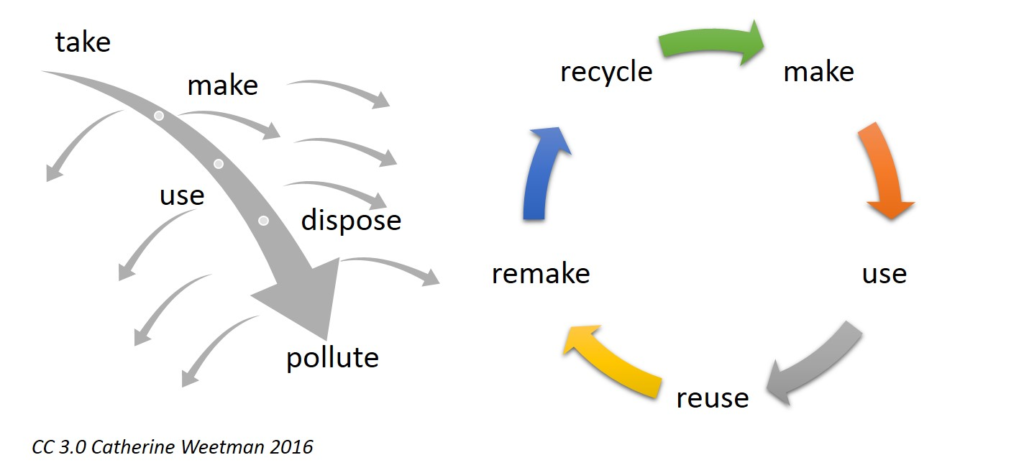Generally defined as ‘meeting the needs of the present without compromising the ability of future generations to meet their own needs’.
Some have defined sustainable development by the balancing of three concepts or pillars: economic viability, environmental protection and social equality (fig 1). A more comprehensive concept centers around the 5 Ps: people, planet, prosperity, peace and partnership.

Sustainable Development Goals
Developed by the UN in 2015 as a framework for the world to develop sustainable policies and agendas.
Some of the SDGs that relate to our project:
Primarily SDG 12: Responsible Consumption and Production but also SDG8: Decent Work & Economic Growth, SDG13 Climate Action.
Limitations of SDGs
One limitation is that they aren’t legally binding and rely on individual countries to monitor and report their progress in achieving the goals. It’s also hard to see how the SDGs can succeed without addressing the economic system which underpins our society i.e. Neoliberalism. Some tenets of neoliberalism are: unfettered economic growth, privatisation of services and utilities, citizens/ people become consumers, tax cuts for the rich and a reduction in the role of the state. The pursuit of unhindered growth is fueling our overconsumption and has led to catastrophic effects on the environment and communities. A new economic model called ‘Doughnut Economics’, challenges this idea of growth. Instead, it seeks to keep economies within the planetary and social boundaries. There is also a push towards an adopting a circular economy where all materials are kept in use as much as possible (fig 2):
